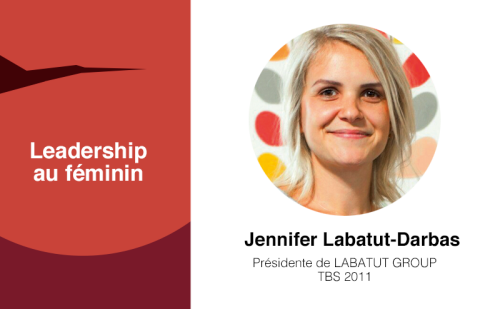I have lived in 10 cities, six countries, two continents and lived in 45 houses with 80 different people!
This is how Barbara introduces herself, who has been a journalist, a communications manager and a project manager! She is now an executive and team coach, specializing in gender-sensitive methodologies to improve the effectiveness of teams.
Barbara MEO-EVOLI
TBS 2013
Executive & Team coach, Barcelone
|
Born to a French mother and an Italian father, she grew up in Rome and in 2005 obtained a Master's degree in International Law at Roma Tre University, which she completed with a degree in journalism. Then, at the age of 23, she seized the opportunity to work in Caracas through an internship financed by a state grant from the Italian Embassy. She then worked as a journalist for Italian media in other South American countries, working in a news agency in Buenos Aires for the equivalent of the Italian AFP. But her longest Latin American experience was in Venezuela, a country she loved for its joie de vivre. However, as her situation in the Americas was struggling to stabilize, she decided to leave journalism and started a Masters at TBS. She worked in Paris as a communications manager before returning to Caracas to work for an oil company . This was when Hugo Chavez was replaced by Nicolas Maduro and she experienced the serious crisis that was happening in the country before returning to Europe, Barcelona, where she started coaching. |
 |
Venezuela, France Spain, three shades of leadership!
"As far as intercultural leadership is concerned, I noted the particularity of Venezuela was that the use of humor in large doses is very common in the managerial chain, perhaps to face the many problems with more lightness!"
| Women are educated on more inclusive values and therefore practice management based on empathy |
Barbara describes her experience of a more rigorous and codified management in France but also in Spain. Of course, humor can also unite teams in France, but it is less prevalent than in Venezuela! In France, she has discovered a leadership that is much more oriented towards the long term and notes a greater recognition of the work of employees.
On the other hand, this orthodoxy can be detrimental to the agility of organizations, a phenomenon that is fading in southern European countries. In France, Barbara noted more rigidity than creativity, which potentially prevents companies from bouncing back quickly, whereas in Spain, reactivity is stronger in the event of a crisis. When asked "In which country did you prefer to work?" she hesitated between France, where she had visibility in her tasks, clarity, and the ability to project herself into the future, and Venezuela, where you have to like the risk but also where life is more intense! In the end, she found Barcelona to be a good mix of the two models.
"Female leadership emphasizes human relationships!"
During her experience in South America Barbara says that she did not suffer from the machismo commonly attributed to Latin management. On the other hand, she found that there were far fewer women managers or leaders and that, generally speaking, women leaders are more likely to be women who do not have children or to be independent young adults. It is rare to meet a female company director with young children...
Barbara believes that women leaders are very committed to their leadership, very creative and we agree that there is a disparity between the Nordic countries and the southern European countries in the way women lead.
In general, she thinks that women are educated on more inclusive values and therefore practice management based on empathy, on the ability to understand the abilities of all team members. Even in intercultural situations, they practice a management style that is respectful of people and attentive to their needs. For example, a woman manager will be less concerned with her own personal advancement than with the overall success of the team. She will also be less directive and more cooperative, as Barbara has observed in all the countries where she has worked.
| Young leaders or managers practice a management style that is much closer to that of women |
In female management, relationships are more horizontal. The exercise of authoritarian power is typical of male management, whereas women base their management more on emotional intelligence.
Barbara also shares her observation that there is a big difference between the men of her generation and those of her parents' generation. She believes that young leaders or managers practice a management style that is much closer to that of women, which is characterized by less violent communication and promotes team resilience.
Women's management in the face of the evolution of the female condition…
Barbara also noted major changes in the status of women in Spain. In fact, the various laws on the length of maternity leave and also on violence against women are reflected in society, particularly in companies, by a growing number of women in decision-making positions. This phenomenon is even more obvious in the young economy and digital companies. Furthermore, we share the deleterious influence of the practice of teleworking on gender relations. Women who telework at home retain the mental burden of household tasks, but we can also see that the management of telework has certainly been favored by female leadership which takes more account of human relations.
To conclude this interview Barbara insists on the importance of integrating a gendered approach in the HR policy of companies. This should apply to both recruitment and team training. Companies must question the leadership model they want to follow in order to promote their attractiveness, take into account their social responsibility and promote their employer brand. For this to happen, there must also be a paradigm shift in the management teams.



















No comment
Log in to post comment. Log in.